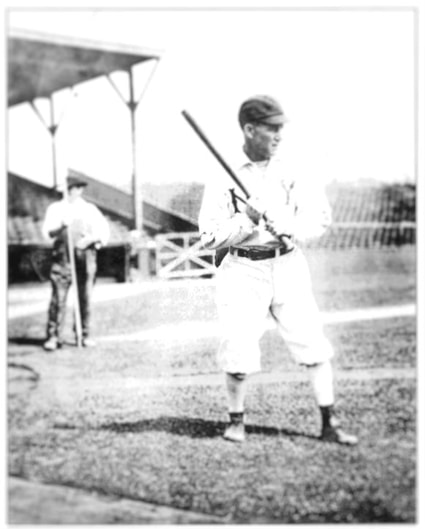
Signal Mountain - Images of America - Arcadia Publishing
In baseball, he was known as "the Tabasco Kid" and was a close associate of Babe Ruth. Norman Elberfeld played shortstop for several teams in the majors: the Detroit Tigers, the Washington Senators, and the Cincinnati Reds. From 1915 to 1917, he managed the Chattanooga Lookouts when they played on Andrews Field, before it became Engle Stadium. Kid Elberfeld and his wife, Grace, bought a home on Signal Mountain named Still Acres and raised their family of five girls and one boy. The daughters, Nannie, Edith, Miriam, Dorothy, and Ruth, made up a basketball team called the Elberfeld Girls. The Elberfelds make Signal Mountain their permanent home. The Kid's baseball career covered more than 30 years. He died January 13,1944 and Grace lived until 1961. (Chattanooga History Center.)
Signal Mountain occupies a portion of Walden's Ridge, a plateau on the lower end of the Appalachian Mountains just outside of Chattanooga. The Creek and Cherokee Indians who used this area for hunting sent smoke signals from the palisades overlooking Moccasin Bend, Williams Island, and the Tennessee River. Union soldiers also sent signals from this lookout, which is now part of Signal Point Park. In 1913, Charles E. James opened the Signal Mountain Inn, beginning the community's development. Resort amenities included golf, swimming and boating on Rainbow Lake, a casino and dance hall, and daily walks to the mineral waters of Burnt Cabin Springs. During World War I, soldiers stationed at Fort Oglethorpe visited the area to spend time with their families. Dignitaries and movie stars arrived for the fine dining and clear mountain air. From this time on, the community grew by leaps and bounds.
Wagner Pond (in Signal Mountain) was originally called Elberfeld Pond. The man-made pond watered the apple orchards that surrounded it. Bob Wagner's grandfather bought the property from the Elberfeld family and later sold a portion to the Hedges family.
Amazon.com
Signal Mountain occupies a portion of Walden's Ridge, a plateau on the lower end of the Appalachian Mountains just outside of Chattanooga. The Creek and Cherokee Indians who used this area for hunting sent smoke signals from the palisades overlooking Moccasin Bend, Williams Island, and the Tennessee River. Union soldiers also sent signals from this lookout, which is now part of Signal Point Park. In 1913, Charles E. James opened the Signal Mountain Inn, beginning the community's development. Resort amenities included golf, swimming and boating on Rainbow Lake, a casino and dance hall, and daily walks to the mineral waters of Burnt Cabin Springs. During World War I, soldiers stationed at Fort Oglethorpe visited the area to spend time with their families. Dignitaries and movie stars arrived for the fine dining and clear mountain air. From this time on, the community grew by leaps and bounds.
Wagner Pond (in Signal Mountain) was originally called Elberfeld Pond. The man-made pond watered the apple orchards that surrounded it. Bob Wagner's grandfather bought the property from the Elberfeld family and later sold a portion to the Hedges family.
Amazon.com




